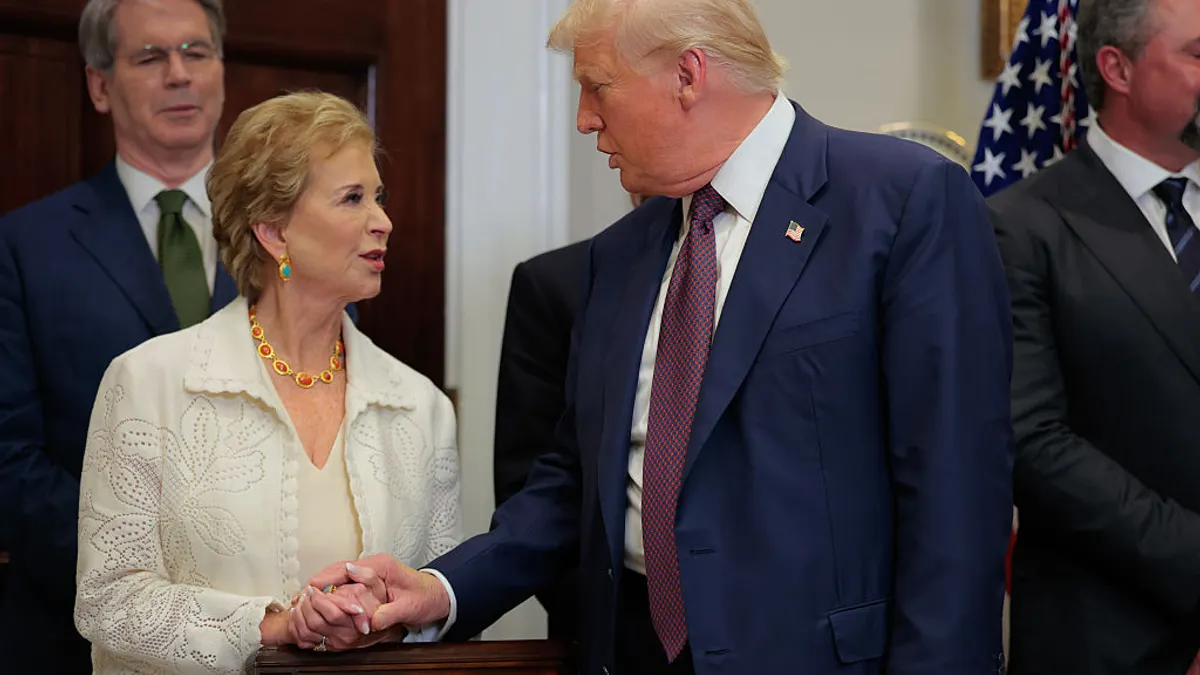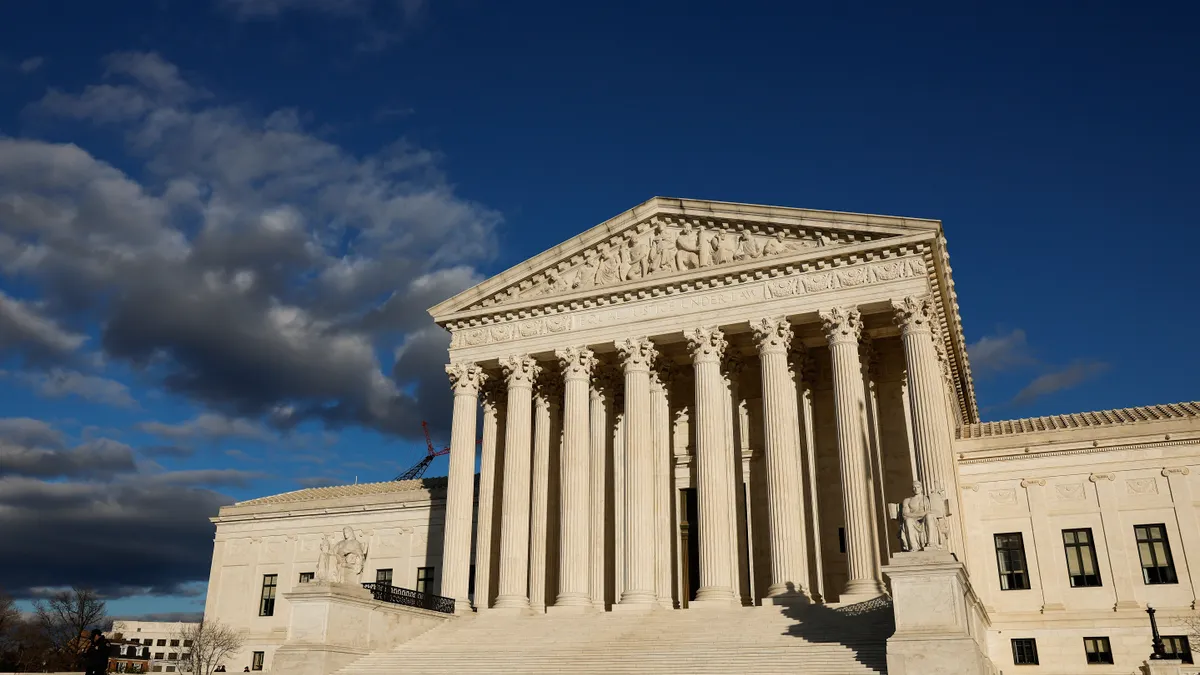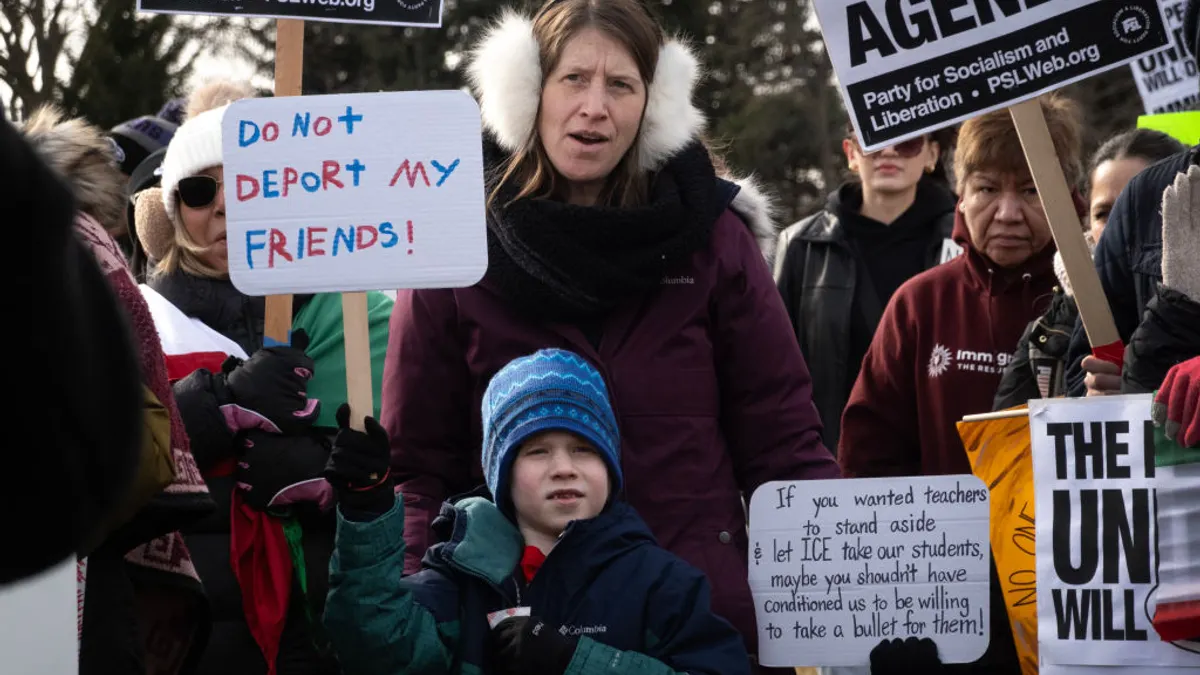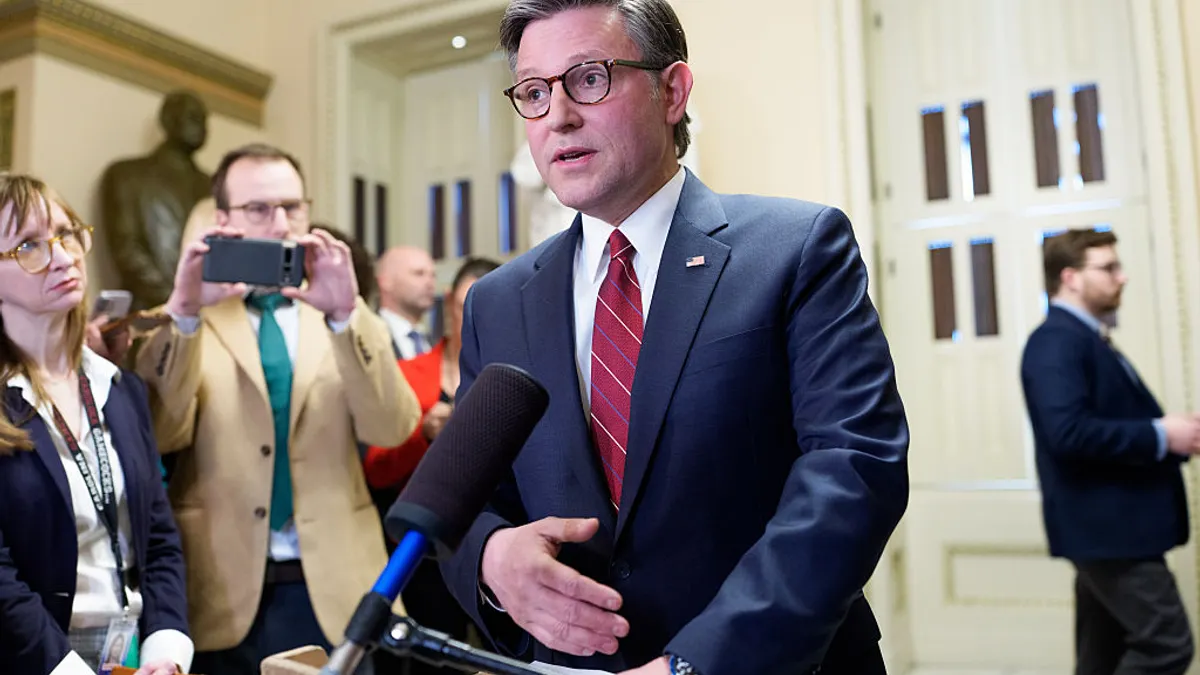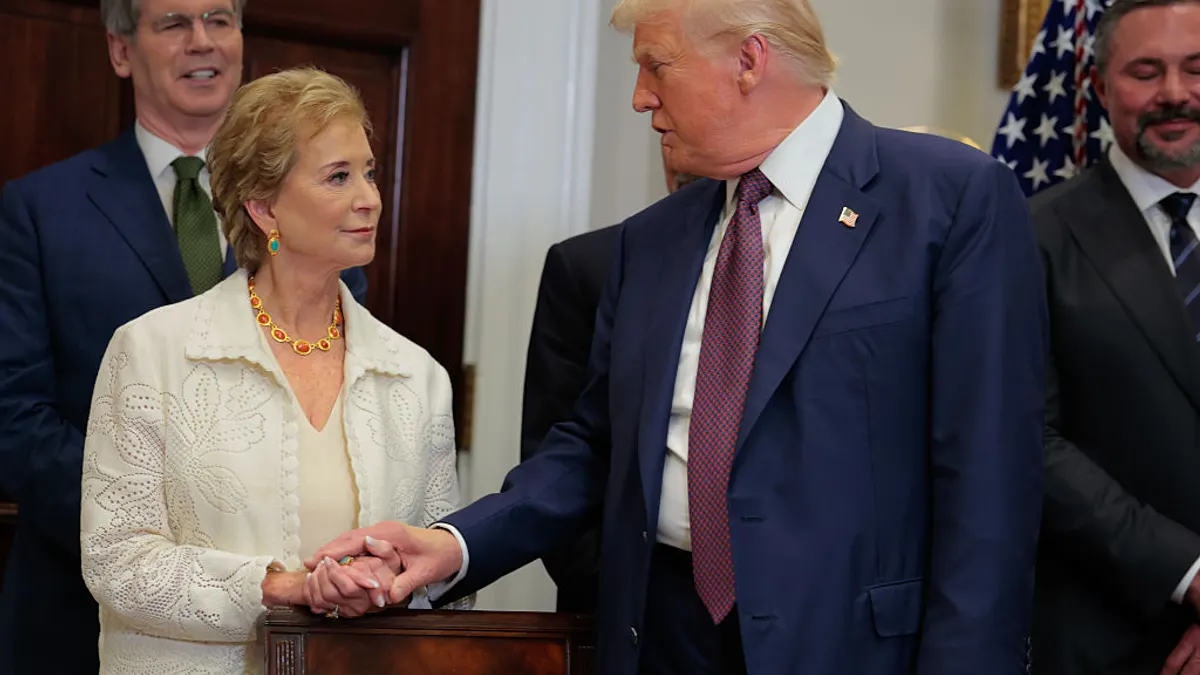Special education and disability rights advocates are ramping up their defense of the federal role in the education of students with disabilities as their concerns grow over a potential shift in how the U.S. conducts special education oversight and support.
There is still no official plan from the Trump administration to move the duties of special education oversight out of the U.S. Department of Education to another federal agency — possibly the U.S. Department of Health and Human Services. But over the past week, advocates have sent a flurry of letters and hosted online forums to prevent such a transition.
"This is a public education crisis," said Jacqueline Rodriguez, CEO of the National Center for Learning Disabilities, during a Nov. 4 virtual town hall. "When you attack the infrastructure that protects 7.5 million kids, you're not just weakening special education, you're weakening public education as a whole."
The Trump administration said it wants to reduce federal interference, make national education programs less cumbersome, and give states more control over how they allocate taxpayer funding, including $15.5 billion under the Individuals with Disabilities Education Act for services to students with disabilities.
For instance, in its fiscal year 2026 budget proposal, the administration said that the Education Department has for decades allocated funds for "numerous small, poorly designed programs that create silos and are ill-suited to State-specific contexts."
The Trump administration insists that any programmatic changes at the federal level would not impact or interfere with services being provided to students with disabilities.
But a Nov. 4 paper from the Center for American Progress said the collective changes the Trump administration has imposed over the past 10 months — such as staff layoffs at the Education Department, budget cuts and policy changes — would lead to long-term negative impacts. Those impacts could include poorer educational and employment outcomes, which would lead to economic instability for people with disabilities, CAP said.
Here are some of the main points advocates are emphasizing as they defend the federal government’s special education role.
States will need to step up
Given the staff reductions this year in the Education Department's Office of Special Education Programs, which left only a handful of employees in that office, the federal oversight role in ensuring states and districts are complying with IDEA will diminish, special education advocates and experts said.
This puts the onus on states to make sure IDEA rules are being implemented, they said.
States need to continue to enforce "what we're losing at that federal level right now," said Chad Rummel, executive director of the Council for Exceptional Children, during the Nov. 4 town hall. "Taking away that federal support for special education undermines the rights of our students and the ability of educators to serve them well."
Stephanie Smith Lee, co-director of policy and advocacy at National Down Syndrome Congress, said the downsizing at OSEP leaves a dearth in support to states in addressing special educator shortages, technical assistance and parent supports.
"Firing so many staff is making it impossible for the department to implement the laws passed by Congress," said Lee, who served as director of OSEP during the George W. Bush administration.
In July, Lee and a dozen other former federal special education leaders from Republican and Democratic presidential administrations wrote a joint letter to Congress urging that special education oversight remain at the Education Department.
The National Association of State Directors of Special Education, in an Oct. 13 statement, said severe workforce reductions in the Education Department "will make it impossible" for the agency to fulfill its IDEA responsibilities, adding that the risks include a lapse in federal funding and lack of services for students with disabilities.
IDEA protections did not change
Only Congress can alter IDEA or close the Education Department. Even if lawmakers shutter the department, schools, districts and states would still need to follow IDEA rules, special education and disability rights experts said.
Rodriguez said during a separate press call on Nov. 5 there are 18 new state directors of special education who might rely on OSEP for guidance on how to implement IDEA. During the same call, Jennifer Coco, interim executive director of The Center for Learner Equity, said her organization has heard concerning stories about local special education leaders in some states questioning which sections of IDEA they no longer have to implement.
Despite the staff reductions at the Education Department, Denise Marshall, CEO of the Council of Parent Attorneys and Advocates, advises families to continue filing discrimination complaints with the Office for Civil Rights at the Education Department.
"The law is still intact. We must continue to use it," Marshall said on the press call. "We must work at the state and local levels to be sure that it's implemented."
The Education Department has the expertise
The U.S. Department of Health and Human Services has been mentioned by President Donald Trump and U.S. Education Secretary Linda McMahon as a possible agency that could absorb the oversight responsibilities for special education. Critics say such a move sends a message that students with disabilities should be supported for their medical conditions, not for their learning potential.
"Framing students with disabilities through a medical lens risks increasing stigmatization, segregation and isolation from their peers," said Robyn Linscott, director of education and family policy at The Arc, during the Nov. 5 press call hosted with several other special education and disability rights organizations.
Linscott added that due to mass layoffs across various federal agencies this year, both HHS and the Education Department lack the capacity to respond to special education oversight requirements and technical assistance needs.
Lanya Elsa, a Washington state parent of two sons who have deafblindness, said the expertise provided by OSEP is essential in supporting educators and families. In early September, the Education Department sent noncontinuation notices to grantees of four deafblind projects in Washington, Oregon, Wisconsin and a consortium of New England states including Connecticut, Maine, Massachusetts, New Hampshire and Vermont.
The department’s notices said the projects didn't align with priorities under the Trump administration.
"These are programs that provide the specialized knowledge both states and districts simply don't have," Elsa said during the Nov. 5 press call. "These programs don't just provide technical assistance, they fill critical gaps and support access and equity for families like mine, but today, that support has been wiped out."


